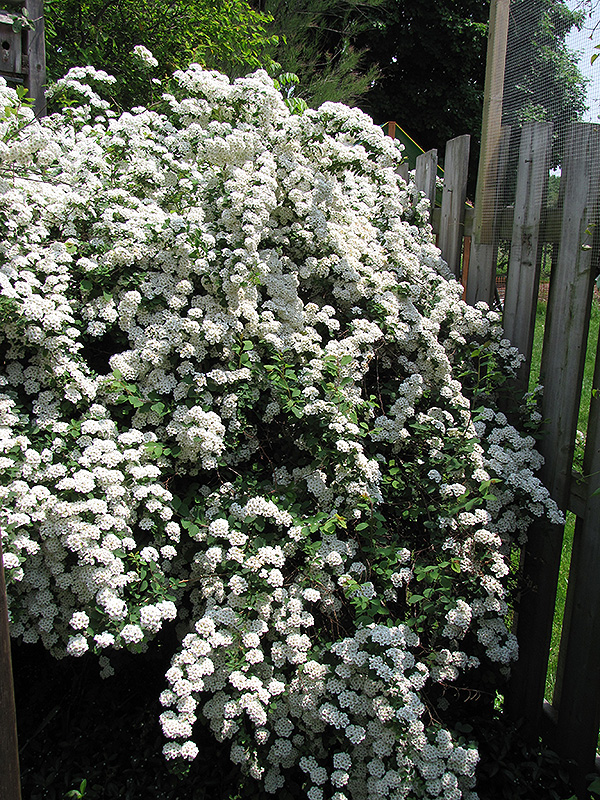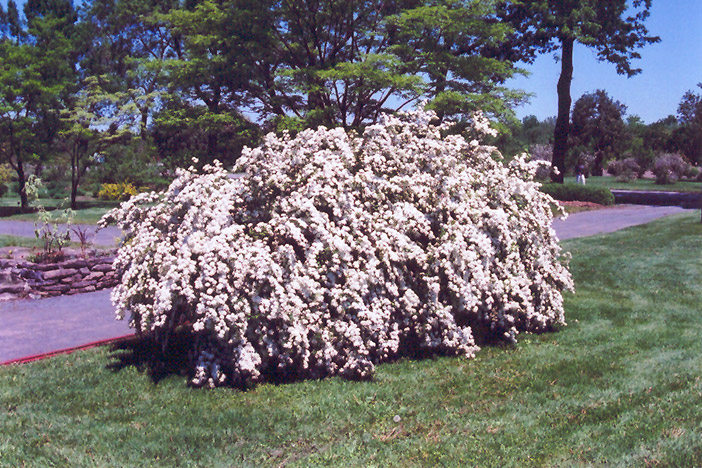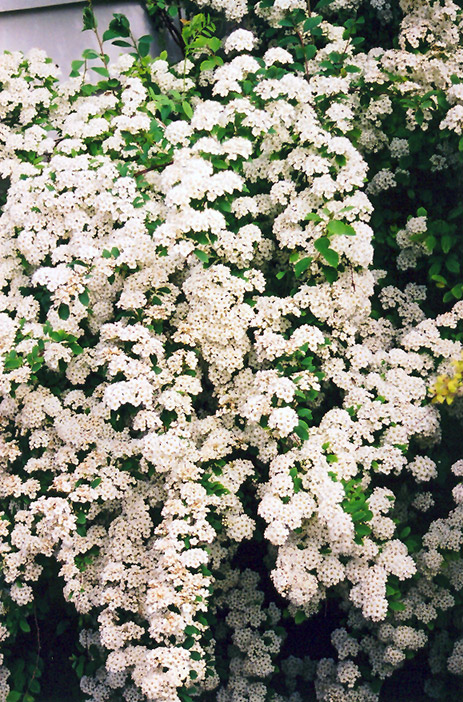VANDERMEER
PLANT LIBRARY
Find the perfect plant for your space by browsing through this extensive selection that we typically carry every year.
This library is for information purposes only.
Height: 8 feet
Spread: 10 feet
Sunlight:
![]()
Hardiness Zone: 3a
Other Names: Vanhoutte Spirea
Description:
An old-fashioned favorite, featuring creamy white flowers held along loosely arching branches in spring; large, bushy and spreading habit, best used as a specimen shrub; a garden classic that needs well-drained soil
Ornamental Features
Bridalwreath Spirea is smothered in stunning white flowers held atop the branches from mid to late spring. It has bluish-green deciduous foliage. The small serrated lobed leaves do not develop any appreciable fall colour.
Landscape Attributes
Bridalwreath Spirea is a multi-stemmed deciduous shrub with a shapely form and gracefully arching branches. Its relatively fine texture sets it apart from other landscape plants with less refined foliage.
This shrub will require occasional maintenance and upkeep, and should only be pruned after flowering to avoid removing any of the current season's flowers. It is a good choice for attracting butterflies to your yard, but is not particularly attractive to deer who tend to leave it alone in favor of tastier treats. Gardeners should be aware of the following characteristic(s) that may warrant special consideration;
- Disease
Bridalwreath Spirea is recommended for the following landscape applications;
- Accent
- General Garden Use
Planting & Growing
Bridalwreath Spirea will grow to be about 8 feet tall at maturity, with a spread of 10 feet. It tends to be a little leggy, with a typical clearance of 1 foot from the ground, and is suitable for planting under power lines. It grows at a fast rate, and under ideal conditions can be expected to live for approximately 20 years.
This shrub should only be grown in full sunlight. It prefers to grow in average to moist conditions, and shouldn't be allowed to dry out. It is not particular as to soil type or pH. It is highly tolerant of urban pollution and will even thrive in inner city environments. This particular variety is an interspecific hybrid.







